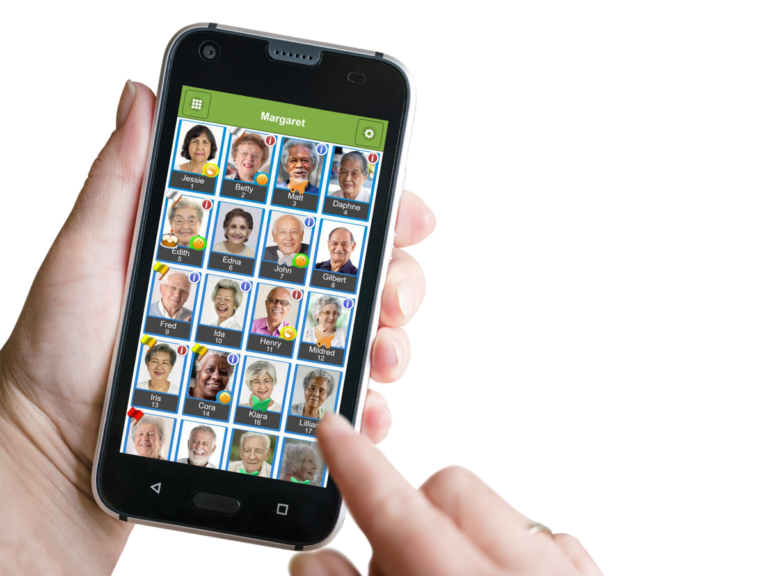
A New Future Beckons: How Digital Tools are Reshaping Adult Social Care
The landscape of adult social care is on the cusp of a transformative journey, propelled by the ever-evolving world of digital tools.
As our population ages and the demand for high-quality care intensifies, we’re witnessing a move from traditional models towards a future empowered by technology. This article delves into the exciting possibilities that lie ahead, showcasing some of the digital tools that are poised to revolutionise the way we care for our ageing population, and explaining why solid IT infrastructure is essential for the successful rollout and operation of these new tools.
Before charting the future, it’s crucial to acknowledge the current challenges confronting adult social care. Workforce shortages, rising costs, and the complex needs of an increasingly diverse ageing population are just some of the hurdles we face. Traditional care models often struggle to provide the personalised, holistic support individuals require, leading to fragmented care and potential gaps in service.
Enter the Digital Revolutionaries!
Fortunately, a wave of innovative digital tools is emerging, offering solutions to these challenges and paving the way for a more efficient, effective, and personalised care experience. Here’s a glimpse into some of the key players:
1. Care Home Management Software:
This software is specifically designed for use in social care settings, particularly residential care homes and domiciliary care. It focuses on providing a digital platform to manage various aspects of personal care e.g. medication, nutrition and activities, while keeping the individual’s needs and preferences at the forefront.
2. Remote Monitoring and Wearables:
Imagine a world where sensors embedded in clothing or worn as wristbands can keep track of vital signs, medication adherence, and even activity levels. This data, fed into real-time monitoring dashboards, can alert care providers to potential health concerns before they escalate, enabling proactive intervention and preventive care.
3. Virtual Assistants and AI-powered Companions:
Loneliness and isolation are prevalent challenges for many older adults. Enter virtual assistants and AI-powered companions that can provide companionship, engage in conversation, and even offer reminders for medication or appointments. These interactive tools can bring a sense of connection and support, combating loneliness and improving mental well-being.
4. Data Analytics and Predictive Modelling:
The mountains of data generated by digital tools hold immense potential. Advanced analytics and predictive modelling techniques can be harnessed to identify patterns and trends, allowing care providers to anticipate potential health risks and personalise care plans accordingly. This data-driven approach can lead to more proactive and preventive care, ultimately improving health outcomes.
5. Telehealth and Virtual Care:
Geographical barriers and limited mobility often hinder access to healthcare for older adults. Telehealth platforms bridge this gap, enabling virtual consultations with doctors, therapists, and other healthcare professionals. This convenient and accessible approach can improve care continuity, reduce hospital readmissions, and empower individuals to manage their health more effectively.

Building a Solid IT Platform is Critical
The successful roll-out of new digital technologies can only be accomplished by having the correct IT infrastructure to underpin it.
As we’ve learned, there are a host of different software applications on offer, delivering everything from real time data collection and monitoring to preventative care solutions . However, unless there is solid IT infrastructure in place to run these technologies, the software often performs poorly and fails to deliver the promised benefits. Staff members may also become resistant to change if the roll out goes badly.
Simple considerations such as having adequate Wi-Fi coverage, ensuring the network has sufficient capacity to support multiple devices and choosing devices that have the right kind of connectivity can all make a big difference to the successful roll out of new technologies.
The support of a strategic IT partner can help ensure the smooth roll out and operation of new technologies. In addition, ongoing technical support, both remote and onsite, is crucial for troubleshooting issues and addressing user inquiries.

Key Factors Required for Successful Delivery of Digital Technologies
By investing in these core IT infrastructure requirements, social care organisations can create a solid foundation for implementing and supporting digital technologies that improve the quality of care, increase efficiency and enhance the well-being of their clients:
1. Reliable and Secure Network Connectivity:
A strong and reliable network infrastructure is crucial for seamless operation of digital tools. This includes a combination of wired and wireless connections that can handle the increasing demands of data transfer and communication between various devices and applications used by social care professionals.
2. Secure and Scalable Data Storage:
Social care organisations need a secure and reliable cloud-based platform to host their digital tools and data. This platform should be scalable to accommodate growth in data volume and users while maintaining robust security protocols to protect sensitive patient information. A regular data backup should also be implemented to protect critical data in the event of a disaster occurring.
3. Cybersecurity Measures and Data Protection:
Ensuring the confidentiality and security of client data is paramount in social care. Implementing robust cybersecurity measures like firewalls, encryption, and regular security awareness training for staff is essential to protect against cyberattacks and data breaches. Achieving Cyber Essentials certification (a government backed scheme) is also of increasing importance to all UK businesses, including social care organisations.
4. Mobile-friendly Technologies and Devices:
Social care professionals often work in various locations and need access to essential information and tools on the go. Providing mobile-friendly applications and devices like tablets and smartphones empowers them to deliver real-time care and improve efficiency.
5. Advice and Training:
Making the right decisions when selecting suitable hardware and software can be challenging, especially if there is a lack of in-house IT expertise. A trusted IT support partner can provide impartial advice and help you make the right choices. In addition, providing training for staff will also help to ensure the smooth implementation of new technologies.
The Road Ahead...
The journey towards a future of digital-powered adult social care is paved with both opportunities and challenges. By harnessing the power of technology responsibly and implementing the correct solutions, we can create a care system that is more efficient, personalised, and accessible than ever before.
For Further Information or advice, please contact the Magikos IT Team or fill in the form below and we will contact you.
Tel: 01344 204019
Email: [email protected]